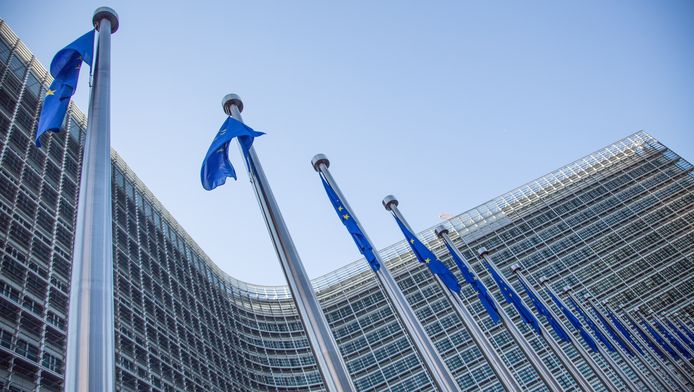BRUSSELS BEHIND THE SCENES
Weekly analysis and untold stories
With SAM MORGAN
10 Things I Hate About EU
Summer is upon us and as we head firmly into the second half of an eventful and crisis-ridden year, Behind the Scenes delves into the ten things to keep an eye on in Europe throughout the rest of 2022.
BRUSSELS BEHIND THE SCENES is a weekly newsletter which brings the untold stories about the characters driving the policies affecting our lives. Analysis not found anywhere else, Sam Morgan helps you make sense of what is happening in Brussels. If you want to receive Brussels behind the scenes straight to your inbox every week, subscribe to the newsletter here.
Ukraine
An end to Russia’s invasion of Ukraine is difficult to predict at the moment. Much hinges on whether Europe and the wider world will attempt to help Kyiv win the conflict or simply survive it. Poland has splashed out on a mega arms deal with South Korea which could unlock more weapon supplies, while the UK remains steadfast in its military support too.
Italy’s fly in the ointment
The Italian political system’s chewing up and spitting out of Prime Minister Mario Draghi and his calming effect on the wider economy could yet be problematic. Early elections are now due in September and the far-right is likely to do very well at the ballot box. This could endanger Rome’s access to billions in EU recovery cash and will give the European Central Bank a bond-buying headache. One of the main rightwing parties polling well, Fratelli d’Italia, insists it will stick to EU rules if placed into power but who knows how much that promise is worth.
Fiscal talks
A reform of pan-European government spending rules will heat up, as some countries seek to loosen the EU’s fiscal laws so that they can splash more cash to get out of the various woes that beset them. The usual frugal suspects want limited reform, while others want a complete rewrite. Italy’s political crisis complicates matters, while Emmanuel Macron’s loss of his parliamentary majority is also another bump in the road. Germany as ever will be one of the kingmakers for this particular project.
Problem child Orban
Hungary’s government has faced street protests in recent days after changes to tax rules sparked unrest. Brussels is still withholding millions of euros in recovery cash until Viktor Orabn’s administration deploys its promised reforms to rule of law standards. This is looking more likely in the second half of 2022 as pressure on the government will probably force the prime minister to make good on his promises. Much can change and quickly though where Viktor Orban is concerned.
Climate D-Day
The current European Commission has built its entire agenda around its much vaunted Green Deal. The European Council and Parliament have both brokered their respective negotiating positions on various legislative updates like the Emissions Trading System, now comes the crunch moment. Ideally, a final agreement on all of the main climate rules should be completed by the end of 2022 so that they can come into force at the start of 2023. After all, these rules include targets for 2030, which is only seven years away. Time is ticking and pressure will build.
COP progress
The end of year UN climate summit needs to be successful this year if the Paris Agreement stands any chance of surviving the next couple of years. This means updated emissions cutting pledges and no obstructionism from the usual pollution-spewing suspects. This is where the EU will have to deploy all of its soft power and, perhaps, a bit of hard power in the form of trade carrots and sticks. All eyes will be on Egypt at the start of November.
Biden’s fate
US President Joe Biden faces midterm elections in November, where he is expected to lose the House to the Republican party. This is based on the conventional wisdom that the incumbent commander-in-chief must be punished for winning the presidential election. If the Democrats do flounder then this will obviously affect Europe as it will limit even further Biden’s capacity to act on global issues, particularly climate change. The president may choose to invoke his special powers to boost green tech even further but this still remains a long shot.
EU enlargement
Albania and North Macedonia have finally taken the first proper steps on their EU membership application quests, after talks were opened earlier this month. But now is the proper litmus test. Western Balkan applicants still wonder whether negotiations have been opened just to placate Tirana and Skopje, so actual tangible results could pay off big time, particularly in eroding Chinese and Russian influence in the region. Whether there is political appetite or even capacity to achieve this on both sides, is another question that will be answered.
NATO
Sweden and Finland’s NATO applications are currently running the obstacle course of parliamentary ratification in the existing 30 members. Turkey has pledged to support their bids if concessions are made. Ankara may yet demand more sweeteners for the deal and if that is the case, it could derail the process completely.
Big spenders
EU countries have banded together in recent months to collaborate on special cross-border projects like electric vehicle battery factories, semiconductor manufacturing capacity and hydrogen infrastructure. These projects benefit from relaxed state aid rules, so keep an eye out for more of these in other sectors and the first results of initiatives that have already been implemented. Their potential to lift Europe out of its malaise is extremely underrated.
BRUSSELS BEHIND THE SCENES is a weekly newsletter which brings the untold stories about the characters driving the policies affecting our lives. Analysis not found anywhere else, Sam Morgan helps you make sense of what is happening in Brussels. If you want to receive Brussels behind the scenes straight to your inbox every week, subscribe to the newsletter here.

